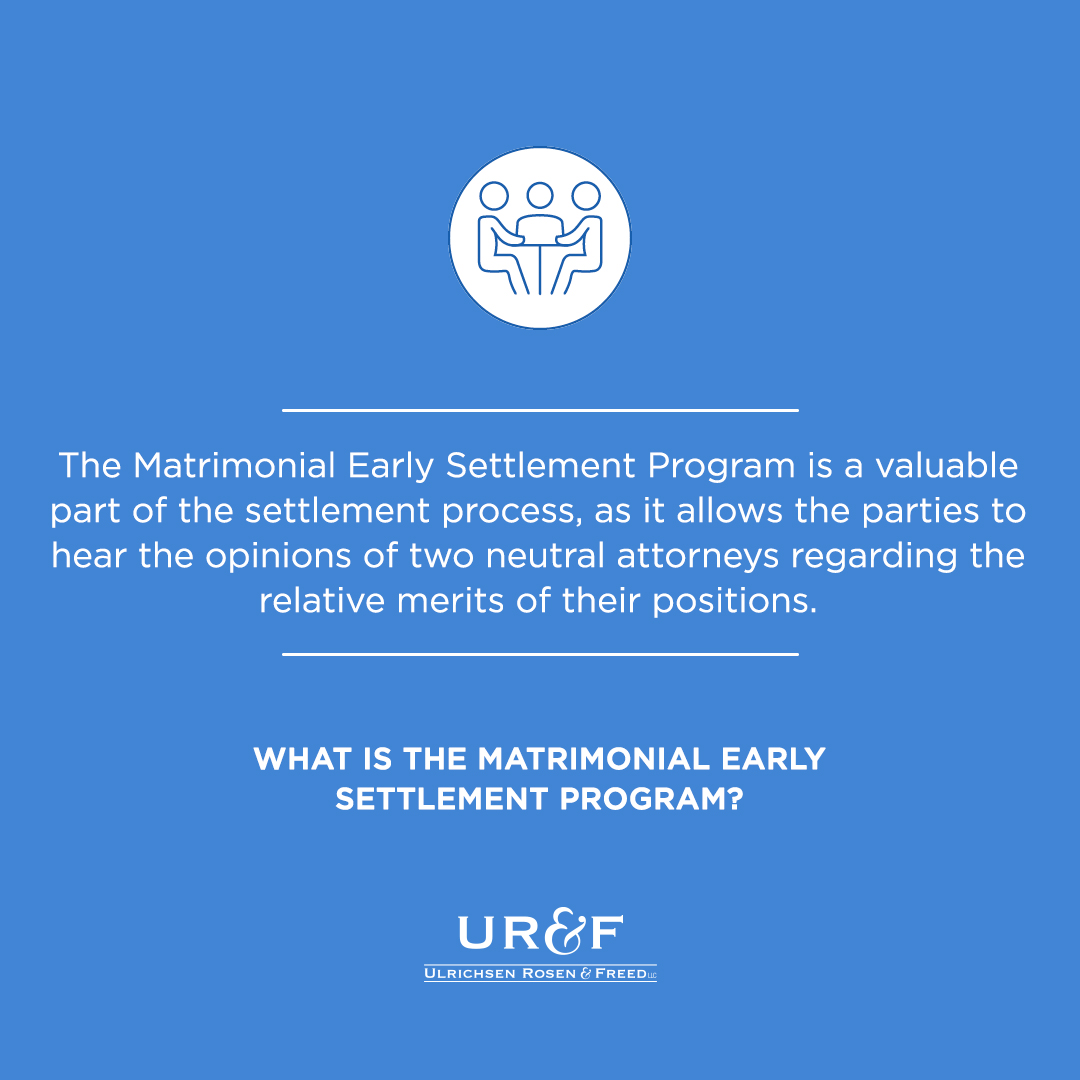What is the Matrimonial Early Settlement Program?
The Matrimonial Early Settlement Program is a valuable part of the settlement process, as it allows the parties to hear the opinions of two neutral attorneys regarding the relative merits of their positions. The panelists can provide valuable feedback to the parties and counsel, with the goal of helping the parties obtain a fair and reasonable resolution of the financial issues.
According to New Jersey Court Rule 5:5-5, “all vicinages shall establish an Early Settlement Program (ESP) . . . and the Presiding Judges, or designee, shall refer appropriate cases including post-judgment applications to the program based upon review of the pleadings and case information statements submitted by the parties.” The Early Settlement Program is often referred to as a “Matrimonial Early Settlement Program” or “MESP” in divorce cases.
In cases where a judgment for divorce has not yet been entered, the parties and their attorneys will attend the MESP after the discovery process has been completed. The parties (via their attorneys) provide written memoranda outlining their positions on all disputed financial issues (i.e., issues other than custody and parenting time) to the panelists. The panelists (who usually consist of one male attorney and one female attorney, each of whom has been practicing matrimonial law for in excess of five years) are neutral. Neither panelist is to have any relationship with either party, nor can any panelist have been a former attorney for one of the parties. Panelists are required to identify any conflict of interest that would interfere with their neutrality at the outset of the process.
Assuming there is no conflict of interests, the panelists review the memoranda provided by counsel for the litigants, as well as any other documents provided. In Mercer County, the memoranda are to be sent to the panelists directly, in advance of the MESP occurring. In other counties, such as Somerset County, the memoranda are to be sent to the Court, who then disburses the memoranda to the panelists. Each county uses a slightly different process.
The MESP, itself, occurs at the county courthouse in designated conference rooms. Generally, the attorneys will meet with the settlement panelists and outline his/her positions and legal arguments relative to the disputed issues. As the panelists will have read the memoranda submitted by the attorneys, the verbal presentation made by the attorneys on the date of the program will be fairly brief (usually around 15 minutes). The panelists will question the attorneys relative to the positions taken.
After each attorney has made his/her presentation, the panelists will ask the attorneys to leave the conference room. The panelists will confer and attempt to reach an agreement as to recommendations they can make to help bring the case to closure. The panelists perform their services without charge to the litigants.
Once the panelists are prepared to make their recommendations, they will invite counsel and the parties into the conference room. The panelists will then explain their recommendations, as well as the basis for making the recommendations. It is critical that the attorneys and litigants take notes regarding the recommendations, as well as the explanations. The recommendations are not binding on the parties. The decision to whether to accept the recommendations of the panelists belongs to the parties and their attorneys.
After the panelists make their recommendations, the parties and counsel will confer to see if an agreement can be reached along the lines of the recommendations. If the parties are in agreement, their attorneys can communicate that fact with the Court and obtain an uncontested hearing date that will be used to finalize the divorce. In certain instances when the parties agree with the recommendations of the panelists, the parties may be able to finalize their divorce on the day the recommendations are made (depending on the complexity of the case and the availability of the Court).
If the parties do not agree on the recommendations made by the panelists, the recommendations are not provided to the Court. The parties will contact a mutually-agreed upon mediator and attend mediation. The parties will then make another effort at resolution via mediation.
The MESP is a valuable process, as it allows the parties to hear the opinions of two neutral attorneys regarding the relative merits of their positions. The panelists can provide valuable feedback to the parties and counsel, with the goal of helping the parties obtain a fair and reasonable resolution of the financial issues.
At Ulrichsen Rosen & Freed LLC, we work closely with our clients to prepare them for the MESP process. This includes meeting to discuss the terms of the memorandum to be presented to the panelists. It also includes advocating on behalf of our clients at the time of the MESP at the courthouse.
For questions regarding MESP or any other family law related issue, please contact the attorneys of Ulrichsen Rosen & Freed LLC. Our firm is focused exclusively on the practice of family law and serves clients throughout New Jersey including clients residing in Mercer County, Somerset County, Hunterdon County, Burlington County and Middlesex County.


